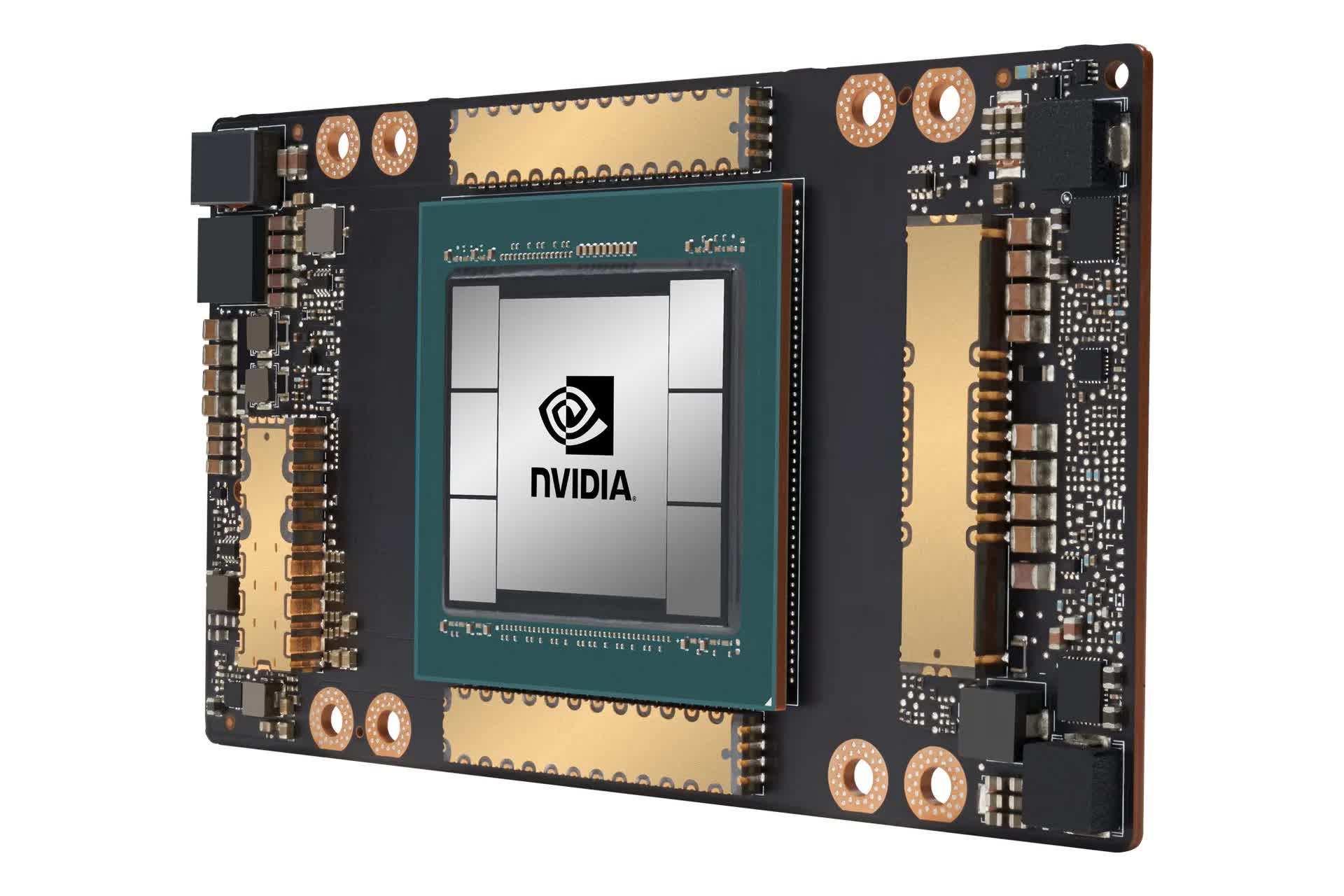In context: Nvidia has responded to reports that the US is considering expanding its restrictions on the export of AI chips to China, a move that would impact more of team green's in-demand products. The company says that the move would hurt its future growth, but there would be no "immediate financial impact."
Nvidia's share price took a tumble yesterday following a report that the US government is considering tightening its export controls on AI chips to China as a way to prevent them being used for military applications.
The update to last year's restrictions would mean Nvidia would need to obtain a licence to sell its AI chips, including the A800 and H800, to China – both are less powerful versions of other chips, and were created by Nvidia to comply with the rule that chip-to-chip data transfer rates must be below 600 GBps.
Nvidia's market cap is above $1 trillion right now as a result of its AI products. Demand for these chips is huge in China, with Tencent, Alibaba, and Baidu making additional orders this year, while ByteDance has reportedly ordered $1 billion worth of GPUs.
Speaking at a financial conference yesterday, Nvidia CFO Colette Kress downplayed the effect the new export restriction would have on the company, at least in the near term.
"We are aware of reports that the U.S. Department of Commerce is considering further controls that may restrict exports of A800 and our H800 products to China," Kress said. "However, given the strength of our demand for our products worldwide, we do not anticipate that such additional restrictions, if adopted, would have an immediate material impact on our financial results."
Kress did warn that restrictions prohibiting the sale of Nvidia's datacenter GPUs to China would result in "a permanent loss of opportunities for US industry to compete and lead in one of the world's largest markets and impact on our future business and financial results."
Kress added that between 20% and 25% of Nvidia's data center revenue, which totaled $4.28 billion last quarter, comes from China, though that includes chips beyond those used for AI purposes.
Nvidia shares were down 3.2% on Wednesday before rising slightly, but they still ended down 1.8%. Chinese AI company stocks experienced heavier loses.
China has strongly opposed the export sanctions placed on the country by the US. In July, the Asian nation banned the sale of Micron chips over what it claims were major security risks to its critical infrastructure supply chain, but many think this was just a retaliatory move.
Earlier this month we heard that universities and businesses in China are turning to underground dealers to secure restricted Nvidia AI chips, and paying a premium to get their hands on them.

